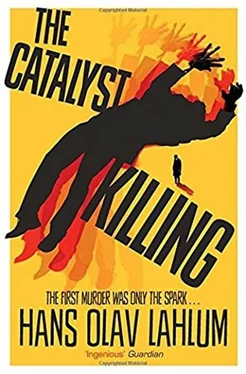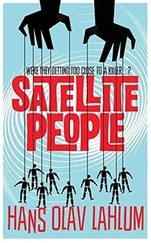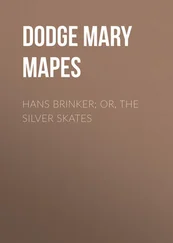Miriam Filtvedt Bentsen’s smile widened even more. She commented with some irony that she would have to look at her timetable first, but that she should be able to find time for dinner in a restaurant once she was out. As a student, one could live for several days on a good restaurant meal, given the current rates on student loans.
We laughed a bit and ended our visit on a cheerful, happy note, despite the serious nature of the case. In the end I was chased out by an almost militant head nurse who was concerned about complications, stress and exhaustion, despite the patient’s mild protests. I tried to excuse myself by saying that I had been there barely half an hour, but had to back down when both the head nurse’s watch and my own proved that I had in fact been there for more than two.
‘Even the police risk being hounded by the military!’ Miriam joked in a whisper as I got up from the chair by her bed. Then she laughed her peculiar, almost sadistically sarcastic laugh. Both this and her joke made me laugh, and I whispered back that the police would be back for another inspection tomorrow.
My fascination and admiration for Miriam had grown in the course of these two hours at the hospital, when I saw the calm and self-control with which she accepted the fact that she had been exposed to a shock and injury that might affect her for life, through no fault of her own. And in parallel, my anger at Patricia’s jealousy and lack of empathy also increased. And I was quite exercised by the time I left Ullevål Hospital at half past seven.
I waved happily from the doorway, remembering a few seconds too late that Miriam could not wave back. But she took it with good humour, and sent me a crooked smile as I shut the door.
The telephone rang just as I let myself into my flat in Hegdehaugen around eight o’clock, and carried on ringing until I answered it.
I was at first relieved when I heard my mother’s voice. But to my surprise, it was not her usual cheerful voice, and she had definitely not called to congratulate me on closing the case.
‘Have you heard the terrible news?’ she more or less cried into the phone.
My mother was normally a woman of great composure, so I realized immediately that something was seriously wrong. My thoughts swirled around my father, my sister and her little girl. I had in no way anticipated what was to come.
‘It’s so sad. I have just heard that Professor Borchmann died of cancer at the University Hospital this afternoon! Is there no end to the misfortune that poor family has to suffer? We were not even aware that he was ill. How could you guess something like that?’
The words hit me like a blow to the chest – it was a knockout. I do not remember sitting down, but suddenly realized that I was.
When I found my voice again, I said that I had certainly had no idea, and could not have guessed either. Professor Director Ragnar Sverre Borchmann had always seemed so strong and solid to both me and my mother. We simply did not imagine that he could die.
I heard myself promising my mother that I would pass on the family’s condolences to the young, now parentless Patricia, if and when I spoke to her again.
Then I found myself asking if she had heard when exactly Professor Borchmann had died this afternoon.
It had been around four o’clock.
As soon as my mother said that, all communication between my brain and my arm was broken. I do not remember saying goodbye. But I suddenly realized that I was sitting with the receiver in my hand, and my mother’s voice was no longer there.
The receiver felt as heavy as lead in my hand. I finally put it back in the cradle. This did not help. When I picked it up again a few minutes later, it felt even heavier. My hand sank listlessly twice before I managed to dial the number correctly with a shaking finger.
I had never before experienced the telephone on Patricia’s table ringing more than three times before she answered. This time it rang for thirteen eternal rings. And when I finally did hear a voice at the other end, it was the maid, Beate, and not Patricia.
I apologized for calling so late on this of all evenings, and asked if it would be possible to pass on our condolences and to have a few words with Patricia.
Beate said that Patricia had told her I would call, and had given her a short message to read over the phone.
The message was as follows: ‘Thank you for your thoughts with regards to the death of my father. I hope that you will understand that I will now have to focus on the various formal and practical things that have to be done in connection with my father’s funeral and the continued operation of his companies. I would be very grateful if you and your parents would come to the funeral. Best wishes, Patricia Louise I. E. Borchmann.’
There was silence on the line for a moment. I thanked Beate, and asked if she could send a message back that I and my parents would of course come to the funeral.
Beate’s voice was trembling when she promised to give Patricia the message. Then there was another moment’s silence.
‘There’s something I would like to tell you, even though maybe I shouldn’t…’ Beate stammered.
She stopped, hesitant, until I asked her to continue. I had no idea what to expect, but did not imagine it could make things any worse.
Beate lowered her voice to little more than a whisper when she continued.
‘They called Miss from the hospital yesterday just before you came. I was standing right beside her and heard what was said. The doctor started by telling her that her father was extremely ill, and that the end was now perhaps only a matter of hours away rather than days. Then the director came onto the phone. He said that she should come now if she wanted to see him again.’
I felt a lump building in my throat. I was whispering now as well when I asked what Patricia had answered.
‘Miss said that she would of course come as soon as she could, but that she did not dare to leave the house and telephone until the case was closed and the murderer had been arrested. It could cost other people their lives and it was extremely important for you, she added. And she couldn’t tell you the truth because she was afraid it would distract you from such an important murder investigation. The director said that he understood and just hoped that she would get there on time. Then he asked her to send you his greetings, and to wish you all the best with the rest of your life.’
The lump in my throat was now enormous and hard. I struggled with it for what seemed like a small eternity before I managed to whisper a final question. And that was whether the conversation she had just recounted to me was the last time that Patricia and her father had spoken together.
Beate replied very quietly and slowly that yes, it unfortunately was.
I thanked her in a barely audible whisper for telling me. Then we put down the telephone at the same time with great care and no noise.
I just sat there for the rest of the evening, old images of Ragnar Sverre Borchmann’s dashing figure flickering through my mind, alternating with Patricia’s immobile expression earlier in the day. I sat beside the phone with my memories until well past midnight, in the hope that it would ring again. But it never did.
The fact that I had successfully closed my third murder investigation brought me as little joy in those few long hours as Patricia’s fortune would bring her. I thought to myself that one did not know what real loneliness was until one had sat alone in oppressive silence: alone in a room with a telephone that never rang, no matter how desperately one might want it to.
It was only many years later that I found out that in the course of my conversation with the maid, and throughout the evening that followed, Patricia had been sitting silently in her usual place by the telephone, chain-smoking. Around midnight, Beate had ventured to say that Patricia should perhaps call me. She had promptly been told that a maid who tried to make a career as a counsellor could just as easily end up without a job.
Читать дальше












